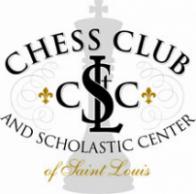
In this 2004 master’s thesis, Hermelin evaluated the effects of an after-school chess club on South African students’ end-of-course math grades. The sample was comprised of 76 grade 5-7 students, with an equal number of students in the treatment and control groups. Treatment group students, who self-selected to participate in the chess club, were matched with non-chess club classmates based on grade level and similar prior year end-of-course math grades. The author uses a test of statistical significance to determine if observed mean differences are statistically significant, and found an effect size of 0.840 standard deviation units. The findings were statistically significant. The study was eligible for inclusion in the systematic literature review and categorized as a Tier II study. While the study does use a quasi-experimental matching design, it does not show group equivalence on pretest results. Because the analysis does not control for student-level characteristics beyond matching on grade-level and past math achievement, exclusion of other variables may bias results.


